Politics
Who Was Witold Pilecki? a WWII Hero with a meeting room at the EU Parliament
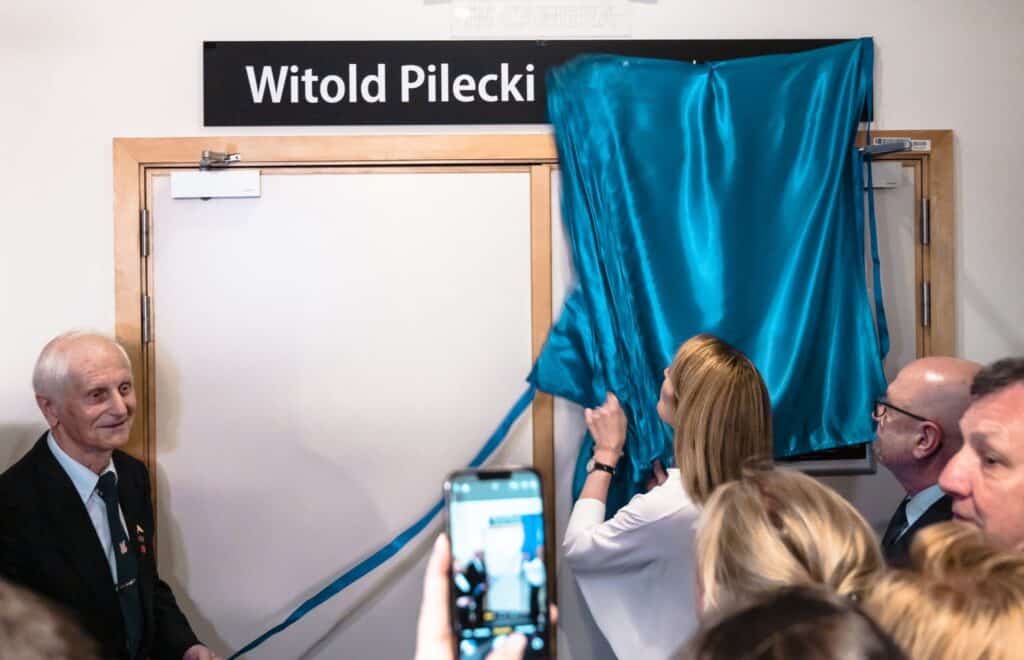
Witold Pilecki’s story is one of courage and sacrifice, and a meeting room of the European Parliament has just been inaugurated with his name, 75 years after being executed by Stalin. President of the Parliament Roberta Metsola was present together with different MEPs from different groups, but especially from ECR (Anna Fotyga), as that is the room where they do their group meetings.
Witold Pilecki meeting room inaugurated at the European Parliament
On May 31st, a room has been inaugurated with name at the European Parliament. A ceremony Has been be held to name the ECR Group meeting room, SPAAK 1A002, in honour of Witold PILECKI, a Polish World War II officer, intelligence agent and resistance fighter who fiercely resisted both Nazism and Communism and whose opposition to totalitarian regimes represents the core values underpinning European integration. Roberta Metsola, EP President attended the ceremony alongside ECR Co-Chairmen Ryszard LEGUTKO, and Mr Marek OSTROWSKI, nephew of Witold PILECKI.
Metsola said during the ceremony:
Today we are here to honour a hero of the 20th century, Witold PILECKI. As a true example of perseverance, he played a pivotal role in shaping Poland’s future. He stood up to totalitarianism as a soldier who fought Nazism, distinguishing himself during the Warsaw uprising against the onslaught of German soldiers. He survived the horrors of Auschwitz. He documented what he saw and what he learned. He resisted the Soviet occupation and withstood horrific torture at the hands of the communist authorities. They thought that by executing him, they could extinguish his light.




Ryszard Antoni LEGUTKO (ECR, PL), Head of ECR group said that:
It’s very difficult to to talk about piece. At least my language fails me. What he did, his heroism extends goes beyond our imagination. What also exceeds the imagination is the evil he faced. He died. Or rather, he was murdered in defiance of the two most devilish inventions of the 20th century. German National Socialism and. And communism. The Communist who murdered him believed that with his death, the memory of him, all about him would be wiped out forever.
Witold Pilecki was a Polish resistance fighter who volunteered to be imprisoned in Auschwitz during World War II. His mission was to gather intelligence and organize a resistance movement from within the camp. Pilecki’s bravery and sacrifice helped to expose the atrocities of the Holocaust and inspire others to resist Nazi oppression. Learn more about this heroic figure and his legacy.
As part of the ceremony, Marek OSTROWSKI, nephew of Witold PILECKI stressed that:

As a little boy, I encountered him during the German occupation. I believe that this was a giant man who, despite such difficult and difficult times, has done so much. Imagine that thanks to his reports, which flowed from Auschwitz and in these reports, the names and names of the greatest gardeners of the German SS men were given. And the BBC reported that via radio, that after the war they would be tried as war criminals, it changed collective responsibility for escaping from Auschwitz.
Znajac biografie Pileckiego, jego odwage, idealy i postawe w obliczu barbarzynskich totalitaryzmow, o wiele latwiej mozna zrozumiec polskie doswiadczenia, nasza wrazliwosc. Jestem przekonana, iz Europa potrzebuje tak nieskazitelnych patronow jak Rotmistrz Pilecki, gdyz tylko… pic.twitter.com/HbHa2xuCub
— Anna Fotyga Biuro Poselskie (@AnnaFotyga_PE) May 31, 2023
Early Life and Military Service
Witold Pilecki was born on May 13, 1901, in the town of Olonets in the Russian Empire (now part of Russia). He grew up in a patriotic family and was educated in Poland. In 1918, he joined the Polish military and fought in the Polish-Soviet War. He continued his military service in the interwar period, rising to the rank of captain. When Germany invaded Poland in 1939, Pilecki joined the underground resistance movement and began his mission to infiltrate Auschwitz.
Infiltrating Auschwitz
Witold Pilecki’s most famous mission was his infiltration of Auschwitz, the Nazi concentration camp. In 1940, he volunteered to be arrested and sent to the camp, where he spent the next two and a half years gathering intelligence and organizing a resistance movement. Pilecki’s reports on the atrocities committed at Auschwitz were some of the first to reach the Allies, and his actions helped to expose the horrors of the Holocaust to the world. Despite the danger, Pilecki continued his resistance work until he was discovered and executed by the Nazis in 1948.
Gathering Intelligence and Organizing Resistance
Witold Pilecki’s bravery and dedication to the resistance movement during WWII is truly remarkable. His mission to infiltrate Auschwitz and gather intelligence on the atrocities committed there was a dangerous and selfless act. But Pilecki didn’t stop there. He also organized a resistance movement within the camp, providing hope and support to fellow prisoners. His actions helped to expose the horrors of the Holocaust to the world and inspired others to resist. Pilecki’s legacy as a hero and symbol of resistance continues to inspire people today.
Escape and Continued Resistance
After nearly three years in Auschwitz, Pilecki managed to escape in April 1943. He continued his resistance work, joining the Home Army and fighting in the Warsaw Uprising in 1944. Despite being captured by the Germans and sentenced to death, Pilecki’s legacy lived on. His reports from Auschwitz were used as evidence in the Nuremberg Trials, and his story continues to inspire people around the world to stand up against oppression and fight for what is right.
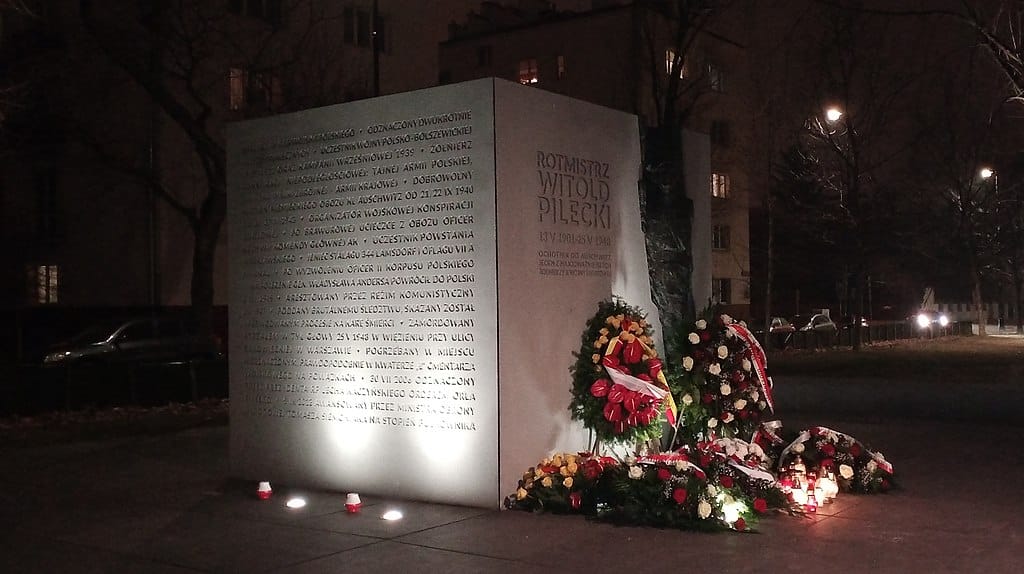
Legacy and Recognition
Witold Pilecki’s legacy as a hero of WWII has been recognized in various ways. In 2006, he was posthumously awarded the Order of the White Eagle, Poland’s highest civilian honour. In 2013, a monument was erected in his honour in Warsaw. Pilecki’s story has also been told in books, documentaries, and films, ensuring that his bravery and sacrifice will never be forgotten. His actions continue to inspire people to stand up against injustice and fight for freedom and human rights. And now, in 31st May 2023, a meeting room of the European Parliament has been given his name.
Politics
The leader of the independence protests in New Caledonia arrested
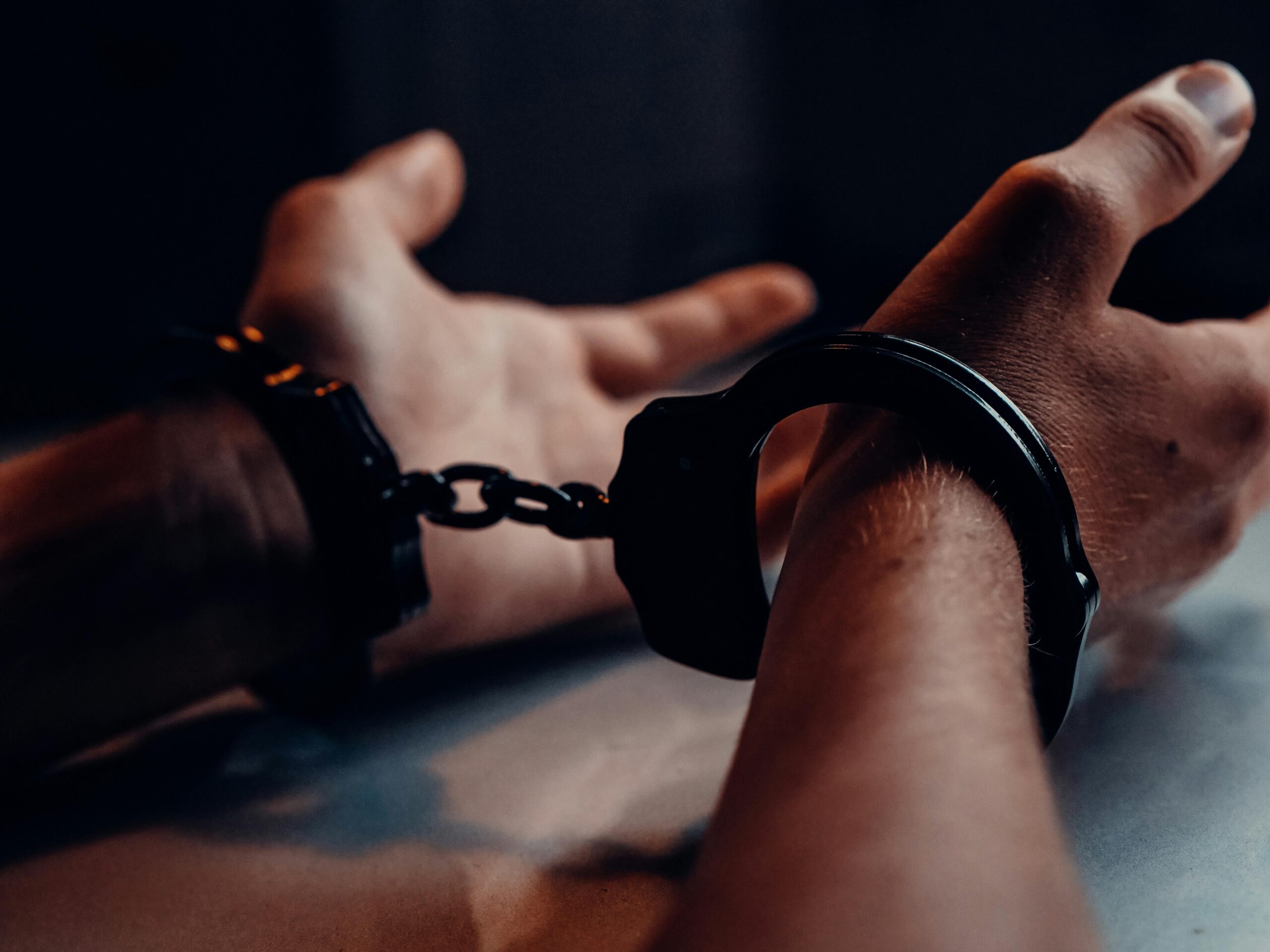
Police in New Caledonia have arrested the leader of the country’s independence protest, Reuters reports. Christian Thane was detained before giving a press conference. Apart from Thane, seven other people have been arrested.
Thane led a branch of the Caledonian Union, which organized barricades in the capital Noumea that disrupted traffic, movement and food supplies. He was among the pro-independence political figures who met French President Emmanuel Macron during his visit to New Caledonia.
Nine people died, including two policemen, in the unrest that gripped New Caledonia last month after France proposed electoral reforms allowing thousands of French residents who have lived in the French Pacific territory for more than 10 years to vote.
Local Kanaks fear this will dilute the vote and make it more difficult to hold a future independence referendum. According to Paris, the measure is necessary to improve democracy.
Macron announced last week that he was suspending electoral reform. Pro-independence groups for New Caledonia want it to be fully withdrawn before dialogue on the island’s political future can begin again.
New Caledonia’s international airport reopened this week, although a curfew is still in place and several thousand French police reinforcements remain.
Illustrative Photo by Kindel Media: https://www.pexels.com/photo/a-person-s-hands-on-the-table-wearing-handcuffs-7773260/
Politics
Enlargement: how do countries join the EU?
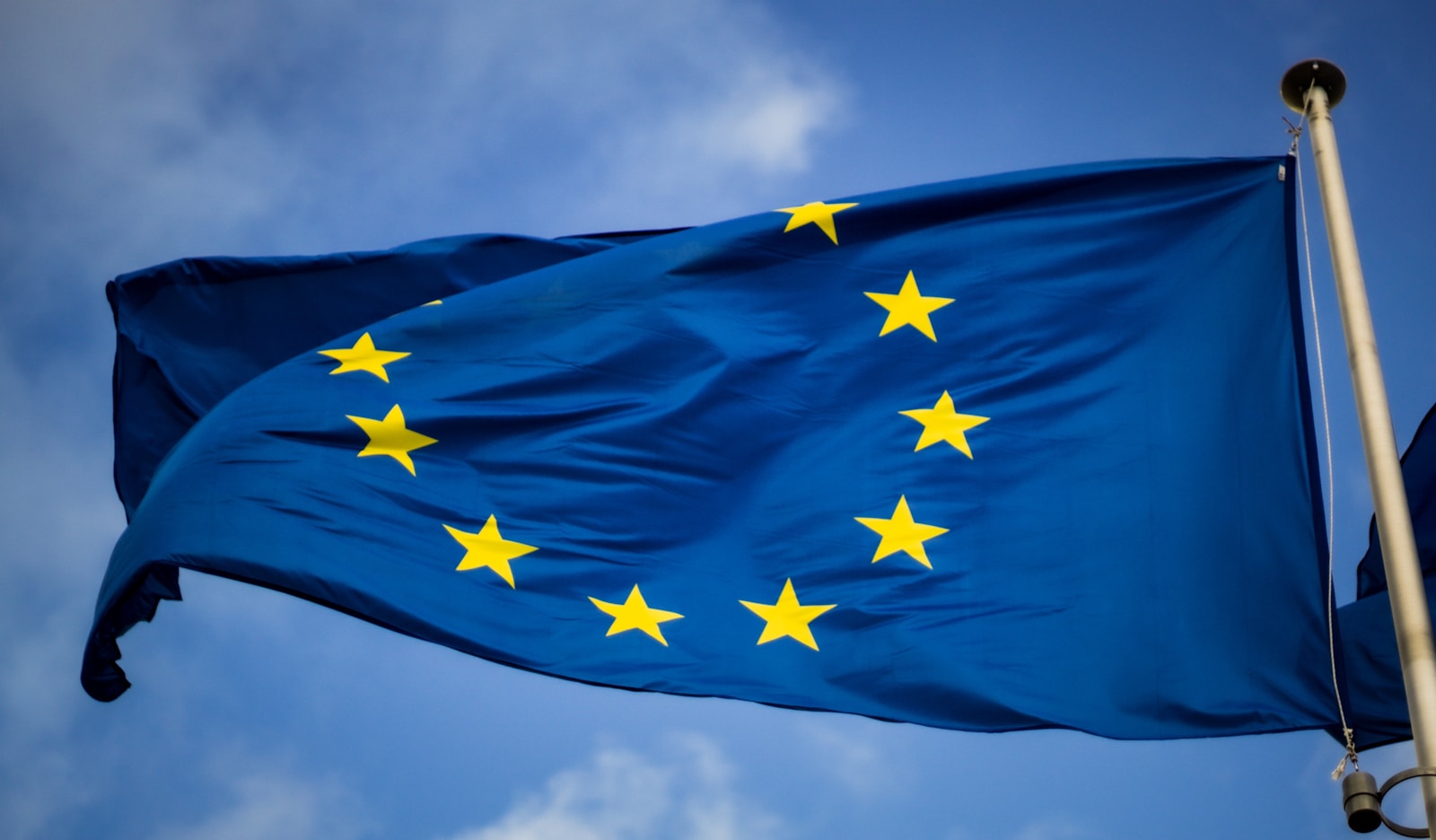
EU enlargement is a way to foster peace and stability in Europe, increase prosperity for Europeans and create opportunities for companies.
Countries preparing to join benefit from closer ties with the EU, stronger support for fundamental rights as well as from funding and expertise from the EU to make the process easier.
In December 2023, EU leaders announced that the EU would recognise Georgia as a candidate country and would start accession talks with Ukraine and Moldova. The accession talks with Ukraine and Moldova formally started on 25 June 2024. In March 2024, EU leaders also agreed to launch accession talks with Bosnia and Herzegovina.
Which countries want to join the EU?
The EU has recognised Albania, Bosnia and Herzegovina, Georgia, Moldova, Montenegro, North Macedonia, Serbia, Ukraine and Türkiye as candidate countries for EU membership, though accession negotiations with Türkiye have been frozen since 2018. This is something MEPs had called for on various occasions due to concerns over the situation in Türkiye, including the rule of law and media freedom.
Kosovo is a potential candidate country.
Who can join the EU? What are the requirements for EU membership?
In order to apply for EU membership, a country has to be European and respect the EU’s democratic values. It also needs stable institutions guaranteeing democracy and the rule of law; a functioning market economy; and the ability to take on and carry out the obligations of EU membership.
What support do candidate countries and potential candidate countries benefit from?
Candidate countries and potential candidate countries benefit from EU funding, detailed policy advice, as well as Association Agreements, giving far-reaching access to the EU’s internal market.
How does the enlargement process work?
A country can become an official candidate once it meets basic political, economic and reform criteria. It can then start formal negotiations on 35 chapters covering many different policy areas with the EU.
Once negotiations and reforms have been completed, an accession treaty is finalised, which needs to be ratified by all existing EU member states and the country itself before the country can join the EU.
What is the history of EU enlargement?
The EU started in 1952 as the European Communities with six founding members: Belgium, France, Germany, Italy, Luxembourg, and Netherlands. The first enlargement took part in 1973 when Denmark, Ireland and the UK joined.
In the 1980s, Greece joined in 1981, followed by Spain and Portugal five years later after emerging from dictatorships in the 1970s. In 1985 Greenland, which is an autonomous part of Denmark with a local government responsible for judicial affairs, policing and natural resources, became the first territory to leave the EU.
The fall of the Berlin Wall and the subsequent collapse of the Soviet Union changed everything again. In 1995 Austria, Finland and Sweden joined the EU. This was followed by two waves of Central and Eastern European countries joining. The Czech Republic, Estonia, Hungary, Latvia, Lithuania, Poland, Slovakia, and Slovenia as well as Cyprus and Malta joined in 2004. In 2007, it was the turn of Bulgaria and Romania.
Croatia became the most recent country to join the EU in 2013. Meanwhile, the UK left the EU in 2020.
What is the current situation for EU enlargement?
Russia’s full-scale invasion of Ukraine in 2022 led to Georgia, Moldova and Ukraine submitting applications for EU membership. The EU formally launched accession talks with Moldova and Ukraine in June 2024, while Georgia was recognised as a candidate country in December 2023.
The EU is also keen to give Western Balkan countries, who have been part of the enlargement process for a long time, a clear path to membership to help stabilise the region and promote fundamental reforms and good neighbourly relations.
What is the role of the Parliament?
MEPs debate and vote on annual progress reports for each country, which is an opportunity to identify areas of concerns.
The Parliament’s approval is also required before a country can join the EU.
Parliament has remained supportive of the enlargement process. President Roberta Metsola called it the EU’s strongest geopolitical tool in a speech to the European Council in October 2023. “That is why the European Parliament had called for Ukraine and Moldova to receive EU candidate status,” she said. “This status gives a clear European perspective to these nations and serves as a powerful impetus for advancing democratic reforms. A quick look back at the last 20 years can illustrate the transformative power of enlargement. That is why we want to go the next step by the end of the year if those countries are ready.”
On various occasions Parliament called for the EU’s doors to be opened to Ukraine and Moldova. In July 2022 MEPs welcomed the Council decision to start the accession process with the two countries.
Parliament continues to support the accession of the Western Balkans countries to the EU. In a resolution adopted in June 2020, MEPs call on the EU to do more to make the enlargement process for these countries a success.
In a resolution adopted in December 2023, Parliament called on the EU to open accession talks with Moldova and Ukraine as well as with Bosnia and Herzegovina, provided the country takes certain reform steps. MEPs also called for a clear timetable to conclude negotiations by the end of this decade and for Georgia to be recognised as a candidate country.
Source: European Commission
Politics
Patriarch Bartholomew: To remain silent in the face of the cruelty of war is shameful!
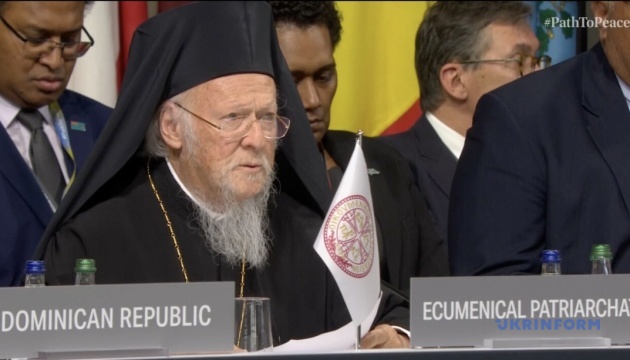
“War is always destructive. To remain silent in the face of the cruelty of war is shameful! It is our duty and mission to protect and promote peace. “Blessed are the peacemakers” (Matt. 5:9). With these words, His Holiness the Ecumenical Patriarch Bartholomew began his short address to the International Summit for Peace in Ukraine, which was attended by leaders and representatives of about one hundred countries and international organizations, and which took place on June 15-16, 2024, in the Bürgenstock resort , Switzerland.
The Patriarch emphasized the importance and value of dialogue, which, in his words, is the driving force of this conference.
Regarding the granting of autocephaly to the Orthodox Church of Ukraine, he emphasized that the Ecumenical Patriarchate responded to the “pastoral needs of the Orthodox believers in Ukraine”: “On January 5, 2019, in response to the pastoral needs of the Orthodox believers in Ukraine, the Ecumenical Patriarchate decreed the Orthodox Church of Ukraine as an autocephalous or self-governing ecclesiastical entity independent of the Moscow Patriarchate. And we did this despite all the difficulties and at any cost, because we firmly believe that Orthodox Christians in Ukraine deserve their own church voice. We are all here to support a just and lasting peace in a sovereign Ukraine. May God rest in peace all those who tragically lost their lives and give strength to all those who defend the peace.”
According to a press release, during the summit the Ecumenical Patriarch had the opportunity to meet and talk with the presidents of Ukraine Volodymyr Zelensky, France Emmanuel Macron and Georgia Salome Zourabishvili, with the Prime Minister of Greece Kyriakos Mitsotakis, the Vatican Secretary of State Monsignor Petro Parolin, with Hakan Fidan, Minister of Foreign Affairs of Turkey, and others.
An interesting detail of the picture of the meeting is the attempt to create a “problem” around the participation of the Ecumenical Patriarch, who attended the meeting as a representative of Turkey, but with the flag of the Patriarchate. Turkey was represented by its foreign minister, Hakan Fidan, and by Patriarch Bartholomew. Highlighting the coverage of the “church participation” in the meeting in the pro-Russian media was the status of the patriarch, who participated with the title of Ecumenical Patriarch. In Turkey, however, his status is recognized only as “Greek Patriarch of Fener”. The presence of his signature as “Ecumenical Patriarch” under the general declaration led the Turkish authorities to emphasize again that they do not recognize Patriarch Bartholomew such a title and role in world Orthodoxy that was inherited from the Byzantine Empire, and he is only the head of the “Greek religious minority ” in the country and can only represent him. The Turkish foreign minister also denied having an official personal meeting with the patriarch within the framework of the conference. This position particularly impresses the Russian policy aimed at compromising and belittling the role of the Ecumenical Patriarchate at all levels and on all occasions.
Turkish media also noted that the Vatican, which attended with observer status through its secretary of state, did not sign the joint declaration signed by Turkey. South Africa, Saudi Arabia, India, South Africa, Thailand, Indonesia, Mexico and the UAE did not sign the declaration. To date, the declaration has been signed by seventy-nine countries and six international organizations.
-

 Sports5 days ago
Sports5 days agoMercedes celebrates Monza: “Goosebumps.”
-
Travel7 days ago
Venice 2024 review: ‘Babygirl’ – Nicole Kidman shines in sex-positive BDSM drama
-

 Health & Society7 days ago
Health & Society7 days agoMarathon of documentaries on Drug Prevention for International Day Against Drugs
-

 Sports7 days ago
Sports7 days agoUS Open, Lorenzo Musetti out of the tournament with many regrets
-
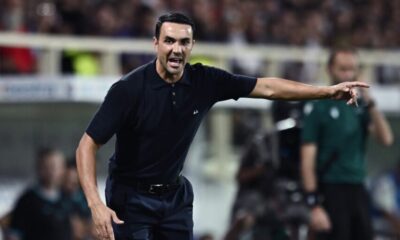
 Sports7 days ago
Sports7 days agoFiorentina closes the market with three strikes
-
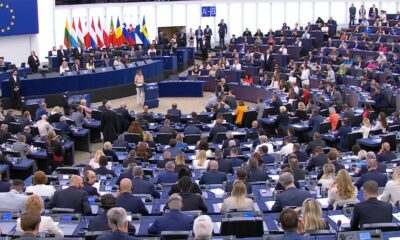
 Politics6 days ago
Politics6 days agoEuropean Parliament begins its 10th term
-
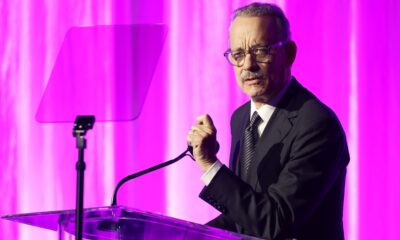
 EU & the World7 days ago
EU & the World7 days agoTom Hanks Warns Fans About AI-Generated Ads Using His Likeness
-

 Health & Society7 days ago
Health & Society7 days agoThe Top 5 Supplements For Optimal Health And Fitness









